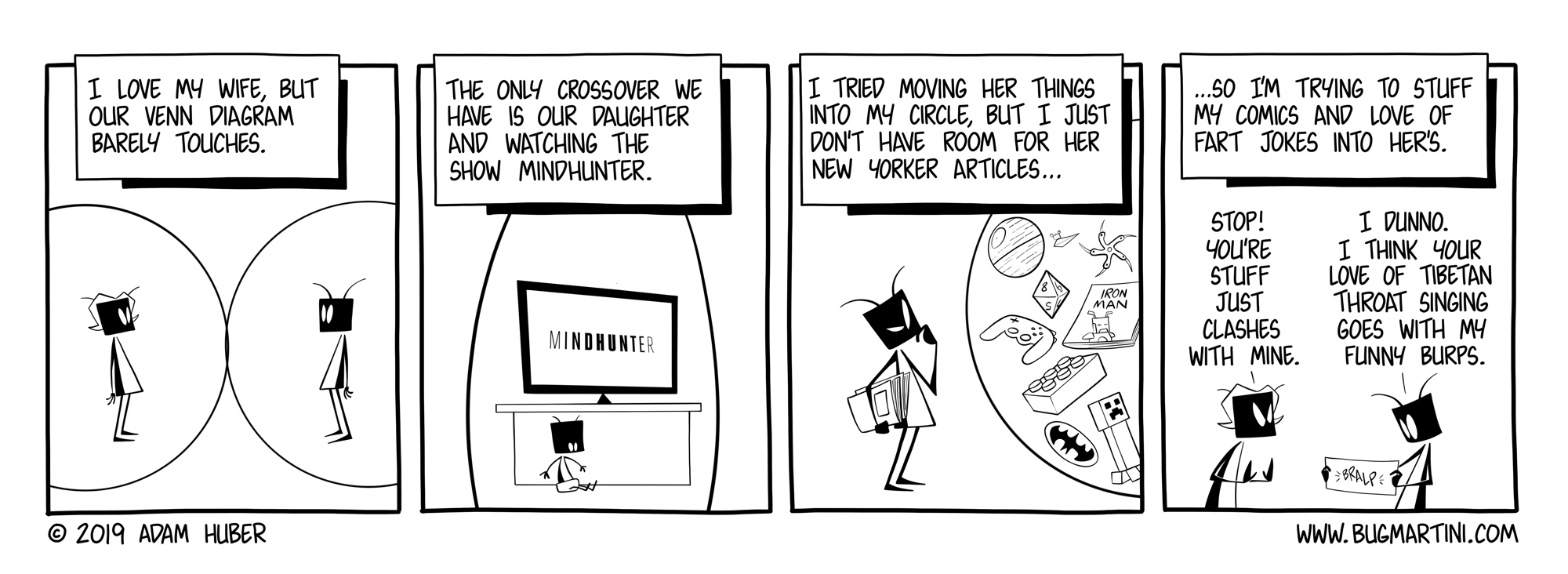I feel lazy today. I think Dad’s right, though.
I mean, how else should you spell it?
I feel lazy today. I think Dad’s right, though.
I mean, how else should you spell it?
Oxymorons are names (usually two words) for things that are self contradictory. Easy post for me today; John Atkinson put together a clever collection of oxymorons.
A fair number of my posts discuss a choice of two things, such as the last post about use and utilize. Today you have a threefold choice.
The third choice is “Different than.”
So what’s the difference?
I see “utilize” a lot in technical writing. A lot of folks seem to think that the fancier word, the better. Not so!
Good expository writing is concise, and that often means using the simpler word if you have a choice. Besides, the words aren’t quite the same. “Utilize” implies that something was used “creatively,” made use of, as it were.
The rule: if use works, use it.
Besides, since that’s a poster, “use” takes up less space and is easier for the audience to read. If they can read.
You all know LOL and IMO and a bunch of others, no doubt. Here’s a TLA (three-letter acronym) that’s new to me.
I don’t have to say a lot today; the parents say it for me.
The lesson: Think about what you write!
Here’s a headline:
Ignore the Phanatic—this guy loves I-95 more than you.
It’s from a Wired article that shows a picture of a fat guy with more than two tattoos on his front. I’m not going to post the photo, but I think this is the link.
(The Phanatic is the Philadelphia Flyers’ team mascot. I-95 is a major interstate along the east coast of the US.)
So here’s my question: Whom or what does he love more?
Comparisons can be tricky. When you proofread your work (you always proofread, right?), check your work for ambiguity.
Not a lot of content here, but it’s on topic…
I counted five spelling errors, not counting the comma.
I’m pretty sure you all know about his, hers, and its; possessives that don’t take apostrophes. So this has to be a misprint; I mean, this guy writes as a professional!

I like to think that maybe the lesson here is that you should proofread! Proofread!
This post describes something useful about ordinary writing, not about Shakespeare.
First, read the comic, first panel.
Notice that you could have put “to be” between “turn out” and “so.” The sentence makes perfect sense the way she wrote it, though, doesn’t it?
Lots of languages leave out forms of “to be” most of the time. I remember hearing an interview in All Things Considered several decades ago. The guy had resolved to stop using any form of “to be.” And I’ve heard occasional remarks from teacher types who pointed out that you can replace “to be” with a more meaningful verb almost all the time, and doing so improves your writing. (I should add that using “to be” often puts a verb into the passive voice, which I already preach against.)
Give it a try: Cut down on using “to be.” It makes your writing livelier.
PS—in the second panel, for example, she could have said “Let’s go offline for the day.”